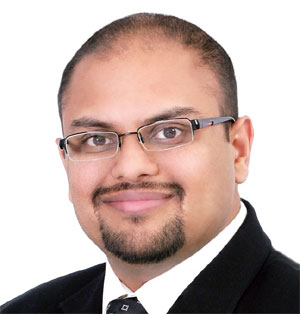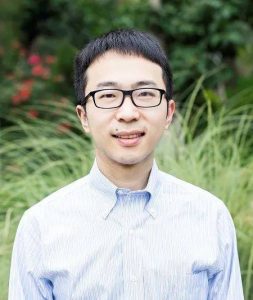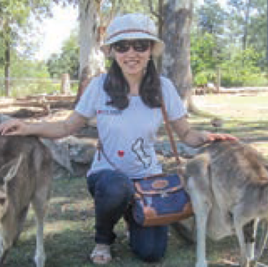
Why pursue graduate study in Economics?
The Department of Economics offers a variety of graduate programs that cater to different needs and interests. While applicants should have a consistent record of academic achievement, knowledge of economics at the undergraduate level is not crucial for graduate studies.
With approximately 50 faculty members, whose research contributions cover all major fields of the discipline and have international impact, we also contribute to public policy discussions in Singapore through applied research and outreach activities. Our students go on to pursue different paths upon graduation, but for all of them our role is the same: to encourage their intellectual development by exposing them to the analytical framework and insights of economics.
The Department offers a taught masters course, the Master of Economics, which has two tracks: the career-oriented Applied Economics track and a more academically-oriented Quantitative Economics track. The Department also has a Master of Social Sciences (Research) course and a doctoral program that graduates almost ten students each year.

Graduate Studies Coordinators' Message
Assoc Prof Luo Xiao
Masters & PhD (Research) Coordinator
Assoc Prof Zeng Jinli
Masters (Coursework) Coordinator
Programmes & Curriculum
About the Course
This track is for students who wish to become professional economists or economic consultants, or who wish to work for government agencies. It is designed for students who wish to apply economics to a wide range of challenging situations facing firms, policymakers, and other stakeholders.
The programme, which has an applied orientation, requires students to take core theory courses and modules in various areas such as financial economics, economic data analytics, behavioral economics, economic policies, and international economics.
Course Structure
Class Schedule:
- ECA modules – All the classes are offered on weekday evenings, while some of the core modules will offer both weekday daytime and evening classes
- EC modules – All the classes are offered on weekday daytime.
Core Modules - Students must complete three core modules
- ECA5101 Microeconomics
- ECA5102 Macroeconomics
- ECA5103 Quantitative and Computing Methods
Elective Modules - Students are required to complete any seven modules.
- For the full list of modules, please see here.
For more information, please visit here.
About the Course
The new academic-focused track is for students who want to acquire more profound knowledge of economic theory and quantitative methods. This track prepares the students for doctoral studies in economics and for careers that require more rigorous training in economic theory and quantitative skills. The new academic-focused track will help students to improve their chances of being admitted into and succeeding in a strong PhD programme.
Course Structure
Class Schedule
- EC modules – All the classes are offered on weekday daytime.
- ECA modules – All the classes are offered on weekday evenings.
Core Modules - Students must complete three core modules
- EC5101 Microeconomics
- EC5102 Macroeconomics
- EC5103 Quantitative and Computing Methods
Elective Modules - Students are required to complete any seven modules (including at least two level 5000 EC modules).
- For the full list of modules, please see here.
For more information, please visit here.
About the Course
The Master of Social Sciences (Research) is designed for students who would like some exposure to graduate training and research in Economics. The program can be completed in two years. It differs from the Master of Economics course (also offered by the Department) in that it has an independent research component and is typically of longer duration.
Course Structure
Students Admitted from Semester I, AY2004/05
1. Complete and pass:
- at least eight taught modules, including
- EC5101 Microeconomic Theory
- EC5102 Macroeconomic Theory
- EC5103 Econometric Modelling and Applications I
- EC5104 Mathematics for Economists
- Master's Thesis and Oral Presentation
2. Obtain a minimum Cumulative Average Point (CAP) of 3.00.
For more information, please visit here.
About the Course
The Doctor of Philosophy (Economics) is a research intensive advanced course that graduates almost ten students each year. Candidates should have a good honors degree (first class or second upper) or a good masters degree, either in Economics or in a field with a quantitative emphasis, such as mathematics, statistics, physics, engineering, or operations research. Research scholarships are available.
Doctoral students get the opportunity to interact with more than 50 faculty members, whose expertise cover all the major areas of economics.
Course Structure
To successfully graduate with a PhD, students are expected to achieve the following:
- Complete and pass at least 12 modules, including
-
Year 1 Semester 1
EC5101 Microeconomic Theory
EC5102 Macroeconomic Theory
EC5103 Econometric Modelling and Applications I
EC5104 Mathematics for Economists -
Year 1 Semester 2
EC6101 Advanced Microeconomic Theory
EC6102 Advanced Macroeconomic Theory
EC6103 Econometric Modelling and Applications II
EC6104 Advanced Mathematics for Economists
-
- Pass a PhD Qualifying Examination
- Submit and pass a Thesis
- Pass an Oral Examination
- Obtain a minimum Cumulative Average Point (CAP) of 3.50
For more information, please visit here.
Job Ready
Graduates of the Economics programme are equipped with analytical skills and statistical proficiencies and go on to establish promising careers both within and outside academia. Organisations that employ our graduates include the following:
• Government Ministries and Agencies — Ministry of Trade and Industry, the Monetary Authority of Singapore, Enterprise Singapore and the Central Provident Fund Board
• Banks and Financial Service Providers
• Technology Firms
• Consultancies
• Universities and Research Institutes
• Educational Institutions
• Healthcare Providers
• Retailers
Whatever our students may choose to pursue after graduation, we see our role as the same: to encourage their intellectual development by exposing them to the analytical frameworks and insights of economics.
In recent years, every NUS Economics PhD graduate has found a job. A majority enter academia – such as Singapore Management University, CUHK-Shenzhen, Beijing University, Fudan University, Renmin University, and Shanghai University of Finance and Economics – and a few are sought after by private sector firms, e.g. Moody Analytics, Everbright Securities, CITIC Securities, Standard Chartered and Barclays Capital.
Our ME graduates are competitive in the job market and PhD programmes. They have been admitted into very good PhD programmes around the world and employed by government agencies, investment banks, consulting firms, etc. in Singapore and other countries.
Testimonials

Vaninder Singh
Master of Economics (Applied Economics)
The biggest testament to the Applied nature of the programme is that even as I studied the various subjects I could see those courses adding value to my professional life; I am a practicing economist working for a global investment bank. More than the core economics subjects, it is the eclectic mix of electives on offer that have provided me with my biggest take-aways. To name just a few; Chinese economy, Urban Economics and Applied Macroeconomics have been some of the courses that I have been able to apply in my everyday work. As a part-time student, the fact that the programme structure is quite flexible has been crucial for me to be able to absorb the most from my studies.
Cai Xiqian
PhD in Economics
I am glad that I had the chance to study in the Economics graduate programme. I met students who came from all around the world. During the years I was in FASS, all of us were able to share not only our knowledge and experience, but to share out culture and enjoy lots of wonderful memories. The professors are not only qualified and knowledgeable; they are also very nice people. I approached them whenever I faced difficulties in understanding certain topics. I would certainly recommend the graduate programme to prospective students looking to gain a deeper knowledge in Economics.


Liu Xuyuan
PhD in Economics
Studying in the FASS Department of Economics was a remarkable experience for me. The graduate research programme enabled me to get full rounded experiences in analysing various economic models, which established my solid foundation of analytical and quantitative skill.
The Faculty of Arts and Social Sciences, National University of Singapore (NUS) is committed to environmental sustainability.
This e-brochure is part of our sustained effort to reduce waste and foster a culture of care for the environment among the NUS and broader community.

